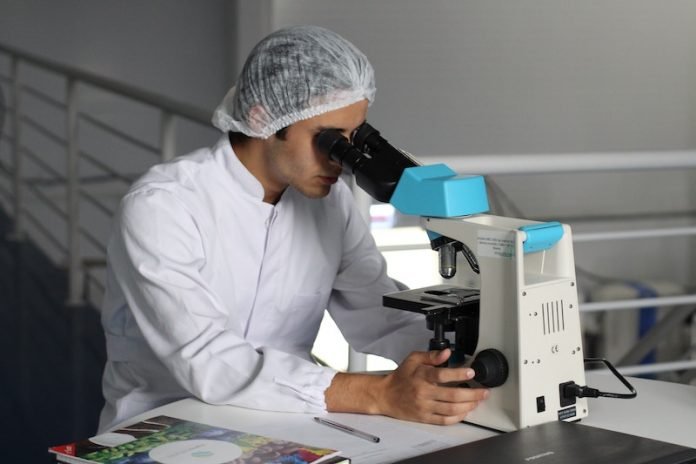
Bacteriophages (phages) are viruses that specifically destroy bacteria.
In the early 20th century, researchers experimented with phages as a potential method for treating bacterial infections.
But then antibiotics emerged and phages fell out of favor. With the rise of antibiotic-resistant infections, however, researchers have renewed their interest in phage therapy.
In limited cases, patients with life-threatening multidrug-resistant bacterial infections have been successfully treated with experimental phage therapy after all other alternatives were exhausted.
In a new study, researchers have for the first time successfully applied phage therapy in mice for a condition that’s not considered a classic bacterial infection: alcoholic liver disease.
The research was conducted by the University of California San Diego School of Medicine and their collaborators.
Up to 75 percent of patients with severe alcoholic hepatitis, the most serious form of alcohol-related liver disease, die within 90 days of diagnosis.
The condition is most commonly treated with corticosteroids, but they aren’t highly effective. Early liver transplantation is the only cure but is only offered at select medical centers to a limited number of patients.
In fact, there are only approximately 8,000 liver transplants for all reasons in the United States each year, according to the American Liver Foundation, with a waiting list of roughly 14,000 people.
Alcohol itself can directly damage liver cells.
But the team had previously discovered that alcohol is also harmful to the liver for a second reason: It diminishes natural gut antibiotics, leaving mice more prone to bacterial growth in the liver and exacerbating the alcohol-induced liver disease.
In the current study, the team addressed two primary questions: How do gut bacteria contribute to liver damage? And can phages be used to reduce the bacteria and thus alleviate alcoholic liver disease?
The researchers discovered that liver cells are injured by cytolysin, a toxin secreted by Enterococcus faecalis, a type of bacteria typically found in low numbers in the healthy human gut.
They also found that people with alcoholic hepatitis have more cytolysin-producing E. faecalis in their guts than healthy people.
The more E. faecalis present, the more severe their liver disease. For people with alcoholic liver disease, more than five percent of their fecal bacteria were Enterococcus, compared to almost none in healthy people or people with alcohol use disorder.
Approximately 80 percent of alcoholic hepatitis patients have E. faecalis living in their feces, and 30 percent are positive for cytolysin.
They also found that nearly 90% of cytolysin-positive patients with alcoholic hepatitis died within 180 days of hospital admission, compared to approximately 4% of cytolysin-negative patients.
Based on this finding, they believe the detection of the cytolysin-gene in feces from patients with alcoholic hepatitis could be a very good biomarker for liver disease severity and risk of death.
Next, the team transferred feces from cytolysin-positive and cytolysin-negative people with alcoholic hepatitis to mice.
Mice with cytolysin-positive humanized gut microbiomes developed more severe alcohol-induced liver disease and survived less than mice without cytolysin.
To investigate the potential for phage therapy, the researchers isolated from sewage water four different phages that specifically target cytolysin-producing E. faecalis.
When they treated the mice with the targeting phages, the bacteria were eradicated and alcohol-induced liver disease was abolished.
Control phages that target other bacteria or non-cytolytic E. faecalis had no effect.
The study not only linked a specific bacterial toxin to worse clinical outcomes in patients with alcoholic liver disease, but it also found a way to break that link by precisely editing gut microbiota with phages.
This phage therapy has only so far been tested in mice, and a clinical trial will be required to test the safety of this approach and validate our findings in patients with alcoholic hepatitis.
The lead author of the study is Bernd Schnabl, MD, professor of medicine and gastroenterology.
The study is published in Nature.
Copyright © 2019 Knowridge Science Report. All rights reserved.



